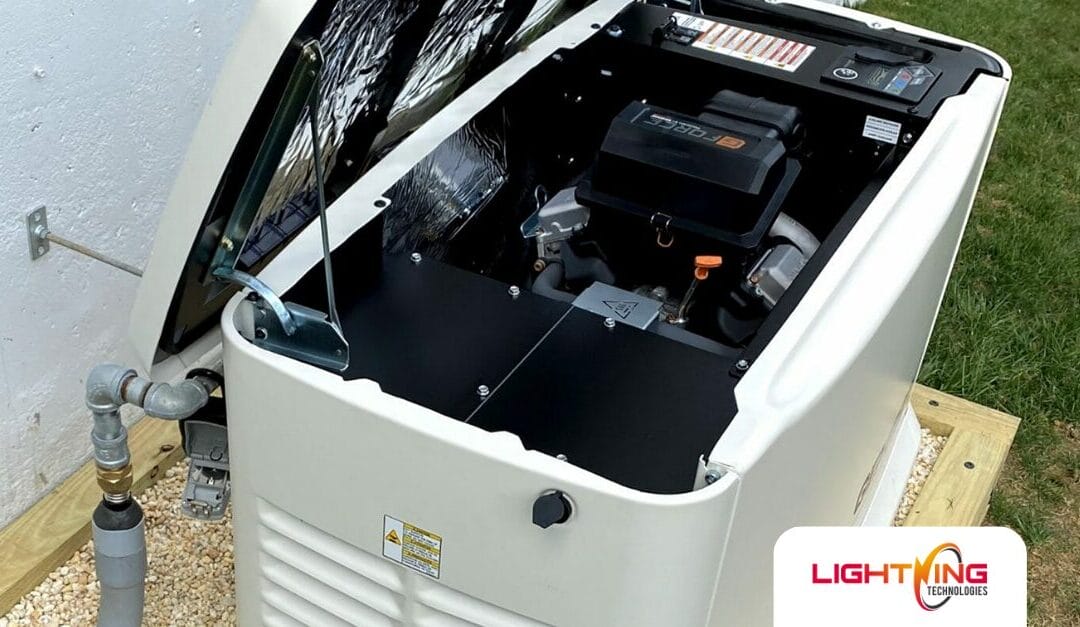The Most Important Factors When Considering a Generator for Your Home
Homeowners know that generators are a smart investment to protect their home and valuables. But how do you decide what exactly is the right generator for you?
Here’s a helpful guide that helps detail all the important factors to make sure you choose the right generator for your property’s needs.
1. Determine Your Power Requirements
It all starts with assessing how much power your home requires during an outage. Power needs vary based on the size of your home, the number of appliances and electronics you want to keep running, and other necessities that are important to your family’s safety and comfort.
Start by making a list of essential devices you want to keep running. This could include lights, refrigerator, medical equipment, heating or cooling systems, sump pumps, and security systems.
You may also want to consider providing power to additional devices like entertainment systems, laundry machines, or electric stoves. These items are typically considered as non-essential loads that can be powered if you have enough capacity.
Now it’s time to calculate the wattage needed for first your essential and then your non-essential devices. For example, a refrigerator might require 600-800 watts, while a furnace blower can require 1,000-1,500 watts.
2. Standby Generators
Standby generators are connected to your home’s electrical panel and automatically start when the main power source to the home fails.
Ideal For: Homeowners who want seamless, automatic power during an outage and need to run multiple systems (heating, cooling, security, etc.) simultaneously.
- Pros:
- Automatic operation – no need for manual setup
- Powers your entire home or specific circuits
- Reliable and runs on natural gas or propane (no need to refuel during an outage)
Lightning Technologies offers the top generator brands on the market including Kohler and Generac. They have an array of color and power options for every homeowner in Chester County and Delaware County Pennsylvania.
3. Choosing the Right Generator for Your Property
The next step is assessing the right capacity that is needed for your home. Sizing a generator correctly is vital so that you don’t overpay for too much power or you don’t get enough power to meet your needs.
Standby generators are usually fitted based on the size of your home and the number of circuits you want to power. There are various models that range from occupying backup power to a few circuits versus a whole-house generator that will ensure that your HVAC system, refrigerator, lights, and other essential appliances are powered without interruption.
You must calculate the starting wattage required for devices with motors (such as a refrigerator or air conditioner) because they require more power when they start up than when they run continuously. Peak demand must not be overlooked when selecting the right size generator.
4. Installation and Maintenance Considerations
Lightning Technologies has licensed and insured technicians with over 40 years experience installing and servicing generators. They will ensure that the generator will automatically activate when the power goes out and is safely wired to handle the home’s load.
The relationship is just beginning after the installation. Standby generators require regular maintenance to ensure they run efficiently when needed and last. Both annual and biannual service plans include inspection, cleaning and testing equipment which helps optimize performance in the long run and extend the life of the generator. Maintenance includes oil changes and air filter replacements and inspection includes checking the engine, battery and alternator.
5. Budget Considerations
The cost of a generator will vary based on 4 primary factors:
- Brand
- Size/capacity
- Features
- Service Plans
Homeowners have to evaluate the initial investment for a generator and compare it to the all of the benefits it afford them like:
- Uninterrupted connection to electrical devices
- No food spoilage
- Assurance of safety for your property at all times
- Constant contact to essential medical equipment
Conclusion
Choosing the right generator for your home in Chester and Delaware County depends on your power needs, budget, and preferences. Start by assessing which appliances and systems you need to keep running during an outage and evaluate all of your options to determine the best fit for your situation. By making an informed decision, you will ensure your home stays powered when it matters most—keeping you safe, comfortable, and prepared for whatever the weather or power grid issues are.
If you’re unsure about which generator is right for you, contact us at Lightning Technologies for expert advice and installation tailored to your home’s needs.


Recent Comments